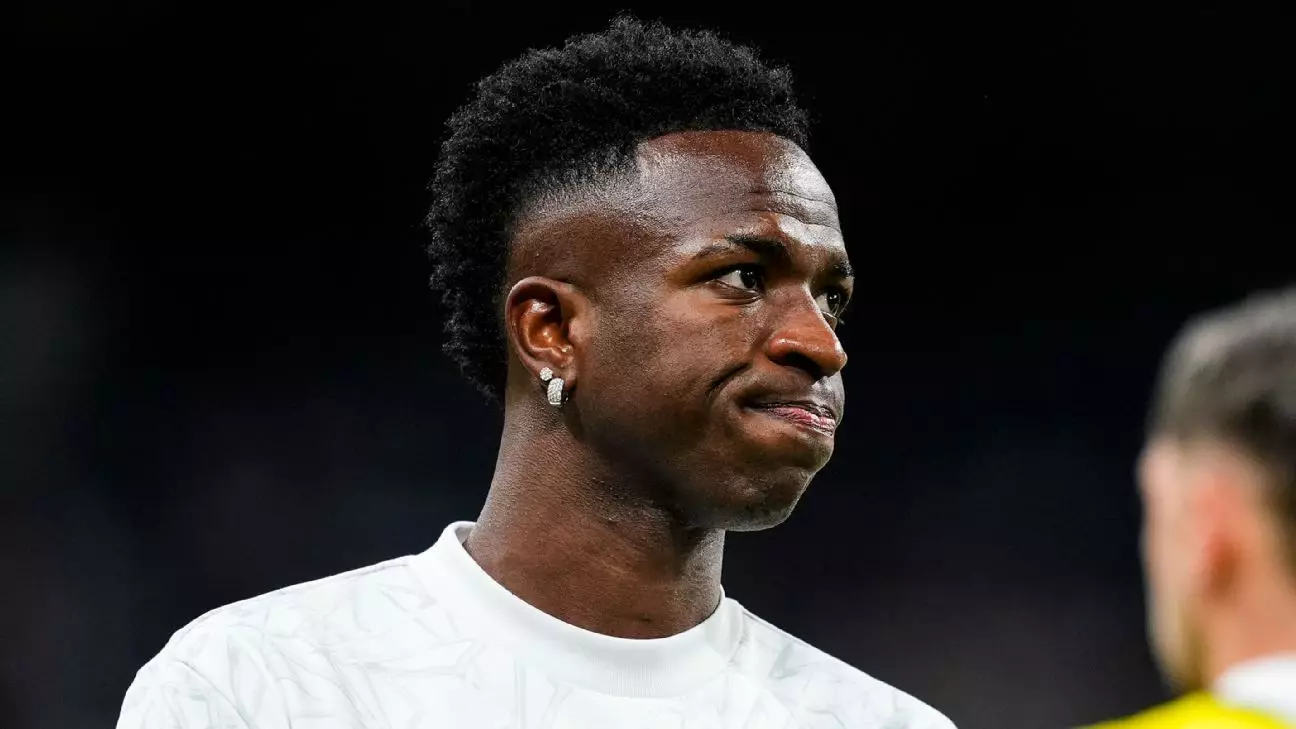The recent announcement of the 2024 Ballon d’Or winner has sparked significant outrage and disappointment among the football community, particularly relating to Vinícius Júnior’s surprising second-place finish behind Manchester City’s Rodri. Many observers felt that Vinícius, at the age of 24, had the momentum and accolades to claim the award after a stellar season with Real Madrid, where he was pivotal in capturing both the LaLiga and Champions League titles. His ability to score crucial goals, including one in the Champions League final, cemented his status as one of the top players in the world.
Despite these accomplishments, Rodri’s win has raised eyebrows, with some claiming it represents a broader trend in football politics that may overshadow players’ performances on the pitch. The results saw Jude Bellingham, Dani Carvajal, and Erling Haaland follow closely behind, but none could rival the particular disappointment felt by the Brazilian winger’s supporters. Real Madrid’s decision to boycott the award ceremony reflects the deep dissatisfaction that has clouded this event, positioning the Ballon d’Or as a contentious topic within the realm of sports.
The Reaction of Teammates and Fans
In the wake of the ceremony, Vinícius received an outpouring of support from both his Real Madrid and Brazil national team comrades. Messages on social media conveyed a unified sentiment: that awards do not define a player’s worth. Eduardo Camavinga and Éder Militão, among others, took to Twitter to affirm Vinícius as the “best player in the world,” insisting that accolades cannot overshadow true talent and accomplishment.
Camavinga’s post, which commented on the politics of football, pointed to the underlying frustrations shared among players regarding how decisions are made. In a sport where passion runs high, such sentiments only amplify beliefs that the electoral process for awards can be unjust and misaligned with player performances. One prominent voice in this discourse was Brazil legend Marta, who expressed anger and disbelief at Vinícius’s lack of recognition, emphasizing her disappointment as a reflection of the broader Brazilian football community’s sentiments.
Vinícius’s situation sheds light on a deeper issue within football regarding how awards are perceived and the criteria used to judge players. Given that a Brazilian player has not secured the Ballon d’Or since Kaká’s win in 2007, the yearning for success feels magnified. Past instances where players like Neymar secured podium finishes but failed to clinch the coveted title raise questions about whether Brazilian players are being judged differently than their European counterparts.
Moreover, the narrative surrounding Vinícius becomes even more complex given his mixed performance at the Copa América, where he struggled to find the net consistently despite his club triumphs. This juxtaposition may have inadvertently clouded opinions about his qualifications for the award, indicating the precarious balance between club success and international performance in the eyes of voters.
Richarlison’s poignant remarks encapsulate a feeling of disillusionment many fans are experiencing as they witness the disconnection between performance and recognition. His comments highlight a yearning for clarity on how award winners are chosen and lay emphasis on the importance of transparency within such significant decisions.
The call for change resonates beyond Vinícius’s situation; it reflects a larger demand within the football community for a more equitable system that celebrates performances authentically. As the backlash continues, there is hope that future award committees will consider these sentiments seriously, ensuring that the accolades truly reflect the exceptional talent and hard work that players, like Vinícius, exemplify on and off the field.
The 2024 Ballon d’Or controversy serves as a sobering reminder that while individual accolades are deeply valued, the real heart of football continues to be rooted in the passion, loyalty, and spirit of the game itself. Vinícius Júnior may not have walked away with the trophy, but his impact and the support he garners from teammates and fans resonate far beyond any award.
